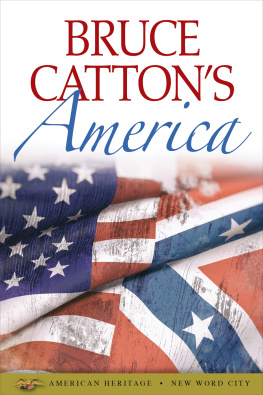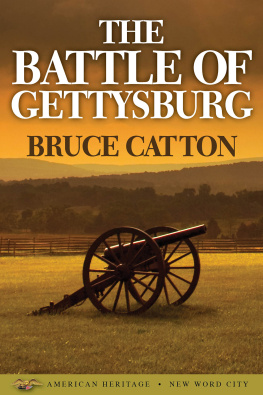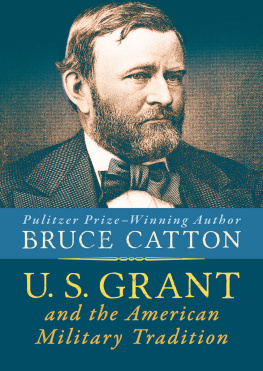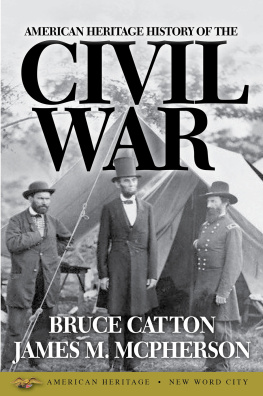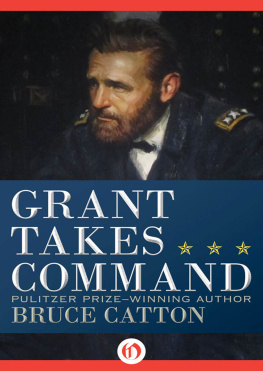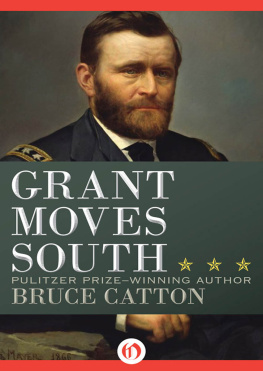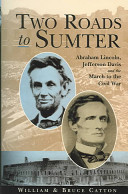
No one ever wrote American history with more easy grace, beauty, and emotional power or greater understanding of its meaning than Bruce Catton. The purpose of this memorial volume is, very simply, to demonstrate that fact. Its selections, some long and some fragmentary, are drawn from an immense body of work, comprising eighteen books, all but one produced after the author was fifty years old, and countless essays, articles, and speeches. Some passages are familiar, but many are not; several have not previously been published. Most deal with the singular American tragedy of the nineteenth century, the Civil War; it is perhaps not too much to say that Catton was its Homer. In his hands, the conflict becomes a truthful epic, told with the kind of philosophical insight and sweeping narrative power required of that artistic form. And if Catton wrote in prose, he could on many occasions verge on something else. Consider, for example, this glimpse of Grants army just before the slaughter in the Battle of the Wilderness: It was the fourth of May, and beyond the dark river there was a forest with the shadow of death under its low branches, and the dogwood blossoms were floating in the air like lost flecks of sunlight, as if life was as important as death; and for the Army of the Potomac this was the last bright morning, with youth and strength and hope ranked under starred flags, bugle calls riding down the wind, and invisible doors swinging open on the other shore. The regiments fell into line, and the great white-topped wagons creaked along the roads, and spring sunlight glinted off the polished muskets and the brass of the guns, and the young men came down to the valley while the bands played. A German regiment was singing John Browns Body.
I shivered when I first read that passage years ago in a review of A Stillness at Appomattox, my first encounter with Cattons work. But although time, that ever-rolling stream, has long since borne away all the young men who stood on that battlefield, and their sons as well, and now Bruce Catton himself, I still shiver as I copy out the words. I suppose I do because they are so poetic, and also because what the passage foretells is so terribly sad, but there is more to it than that. There is a near-magic power of imagination in Cattons work; it almost seemed to project him physically onto the battlefields, along the dusty roads and to the campfires of another age. He made these scenes live, and he took spellbound readers with him. Arthur Schlesinger Jr. has compared this remarkable ability of Cattons to identify himself with his subject to Walt Whitmans, and Catton may have been aware of it himself. He once turned off a serious question about it with a kind of half-joke. How could he know so very much about what it was really like? his friend and research collaborator, E. B. Long, once asked.
I dont know, replied Catton. Maybe I was there.
There is a thoroughly rational explanation for this supposedly supernatural reality in his books: He had read about all he could lay hands on in a huge literature - the regimental histories, the biographies and memoirs, the general histories, the government records, the commentaries, the letters and manuscripts. He had been immersing himself in them for years before he first wrote about the Civil War. He pored over contemporary pictures until, he confessed, he would have recognized more faces on the streets of Washington in the 1860s than in the 1960s.
Some years ago when he was away for the summer at his home in Michigan, I happened to ask him in a letter how he had developed such enthusiasm for that war, and got a typically self-deprecatory reply: That question always reminds me of the old gag about How did a nice girl like you ever get into a business like this? And he went on to say, I grew up amidst a regular flower-bed of Civil War veterans. In the small town that I infested as a lad, I used to hear the old gentlemen tell war stories until I felt as if the whole affair had taken place in the next county just a few years ago. I remember especially on Memorial Day when I was small thered always be a meeting in the town hall, with the Grand Army of the Republic veterans on the platform, with songs and speeches: then everyone would troop out to the village cemetery, to lay lilacs on the graves of the departed veterans.... Incidentally, our cemetery was built on a low ridge looking out over pleasant rolling country, and one or another of the G.A.R. vets told me it was not unlike the famous, much-fought-over cemetery at Gettysburg. Thats how direct the line was to the Civil War, in those days....
The town he infested was Benzonia, Michigan, described by Catton himself in the selections in the first chapter of this book. It is near Lake Michigan, on the states lower peninsula, and about 100 miles south of the resort and camp-meeting town of Petoskey, where he was born on October 9, 1899. He left Benzonia in 1916 for Oberlin College, then brief service in the navy during World War I. He returned for a while to college, but never took his bachelors degree - not a notable lack, it turned out later, for he eventually collected well over a score of honorary ones.
Such honors were yet to come during Cattons long career as a newspaperman. In the 1920s and 30s, he was variously a reporter, editorial writer, interviewer, book reviewer and columnist, working for the Cleveland News, the Boston American, and the Cleveland Plain Dealer. By 1939, he was in Washington, writing a syndicated column.
When the United States entered World War II, Catton went to the War Production Board as a director of information, which gave him a close view of battles between his chief, Donald Nelson, and the army: the old struggle of the civilian with the military arm of government. Out of these bureaucratic follies and missed opportunities, Catton drew his first book, The War Lords of Washington, written at times with white heat but received with calm if not silence when it was published in 1948. Wars have to be seasoned before they can be written about. For several years, Catton continued in government, writing speeches and acting as director of information in the Department of Commerce. But the Civil War still lurked in his mind.
His first attempt, Catton said long afterward, was to try a novel about the war. But, disliking the result, he tore up the manuscript and decided to go at things straight. And his first subject was that great, vanished, blue-clad host - by turns overconfident, defeated, valiant and triumphant - the Army of the Potomac. Mr. Lincolns Army, the first volume of what became a trilogy, had trouble finding a publisher. Turned down at several noted houses, it was published by Doubleday in 1951, with the second volume, Glory Road, following a year later. The reception was modest until, with the publication of A Stillness at Appomattox in 1953, all the trumpets sounded.
It was at the height of his new fame that, less than a year later, in mid-1954, Bruce Catton, urged on by such eminent friends as the late Allan Nevins, consented to join the small group who were organizing the new hardcover magazine of history, American Heritage. The magazine had existed before, to be sure, for five modest years as the quarterly of the American Association for State and Local History; but this was a new, bigger, and riskier enterprise. Before meeting him, I wondered whether our proposed first editor would be a little flamboyant - in the newspaper tradition of The Front Page - or perhaps a big-time bureaucrat; but what appeared was a tall, quietly dressed, and unassuming man with the courtly good manners of the old Midwest. He put on no airs, and made no demands. As his editor Samuel Vaughan of Doubleday once wrote of him, Many popular or distinguished writers receive (in the post-office phrase) special handling, but Mr. Catton, who is both distinguished and popular, earns much special handling and never demands any.

